“You can’t out train a bad diet.” This cliche got popular sometime in the 2000’s. Today it’s ubiquitous. It’s all over social media. It even appeared in scientific journals. A few years ago, an editorial in the British Journal of Sports Medicine included, “You cannot outrun a bad diet” in the title. I might have said it a few times myself in the past. In fact, guess what? Yeah. That line is even in my book, right in the first chapter. But today I’m here to explain how this phrase unfortunately gets misinterpreted far too often.

Basically, this sound byte is trying to convey one simple and important idea:
If you don’t control your food intake and balance it with your activity so you sustain a caloric deficit, you won’t lose weight no matter how much you exercise.
Re-phrased this way, in the context of energy balance, I don’t think anyone could disagree. If this is how you interpret “You can’t out train a bad diet” then bingo! You got it. You get a gold star.
It’s an all-too-easy mistake to eat back the calories you just burned. It also takes a ton of time and effort to burn the number of calories it’s possible to inhale in a matter of minutes.
What’s more, most people don’t burn as many calories as they think during exercise. The average weight training session burns shockingly less than most lifters estimate.
A recent study in Medicine and Science and Sports and Exercise said that number is usually between 100 and 300 calories for a workout the average person would do. Yep, that’s it! A big guy doing a very long, high-volume session might burn 400 to 500.
Moderately intense steady cardio burns more calories. Yet few people outside of endurance athletes will ever come anywhere near burning 1000 calories a day from exercise. Ironically, a lot of folks seem to think that’s an attainable number.
But if you do burn a significant amount of calories, and you don’t eat yourself back to square one, you will lose weight!
Suppose you’re a big guy and you managed a heroic hour of running or kickboxing and burned off 1000 calories. If you controlled your diet so you kept eating the same as before, and there was no compensation at all, that amount of exercise over time would have a huge impact on increasing weight loss. Even better news is that you can increase weight loss with much more moderate, realistically maintainable training loads.
The key is controlling your diet at the same time you add exercise.
It’s scientifically indisputable that exercise can promote weight loss because it’s scientifically indisputable that weight loss occurs due to negative energy balance. Of course, saying, “It’s just calories in versus calories out” is over-simplistic. The macros matter. Protein intake matters. Food choices affect health as well as satiety. Ultra-processed foods are easily overeaten. Not to mention the body adapts during diets and a calorie deficit is a moving target.
But when it comes to weight loss, everything still comes full circle to energy balance.
You can achieve negative energy balance by adding exercise, by reducing food intake, or a combination of both. Weight loss isn’t caused by one or the other, but by the state of energy balance created between the two.
Furthermore, it IS possible to out-train a bad diet, so “You can’t out train a bad diet” is not even literally accurate. Full-time athletes, especially younger ones, in a variety of different sports, do it all the time. They often need to eat copious amounts of food to fuel their (sometimes multiple times per day) training and keep their bodyweight from falling. Many endurance athletes fall into this category as well.
Here’s a fun personal example: In 2017 I took a multi-month sabbatical and I thru-hiked the Pacific Crest Trail. I backpacked about 20 to 25 miles a day through the Mojave desert, the Sierra Nevada and the Cascade mountains. Each time I arrived in the next town, I ate more pizza, burgers, and syrup-soaked pancakes than ever before in my life. I couldn’t stop myself from losing weight. The pounds were falling off me despite a “bad” diet in every sense of the word – food quality and quantity.

The issue is not that it’s impossible to out-exercise a bad diet, but that the average person won’t or can’t, on a practical level, burn enough calories to do it. “Hike 20 miles a day to lose that excess weight.” Said no trainer ever to a regular person with a family and day job.
Even a less extreme “two cardios a day” plan won’t be sustainable for long for most people. The average person won’t even sustain more than 12,000 steps a day – not every day, month after month.
There are indeed studies which suggest that exercise doesn’t appear that effective for weight loss. Or at least, the weight loss achieved doesn’t seem to match what you’d predict based on simplistic calorie math. But that’s not negating the law of energy balance. There’s a reason for the lackluster results. The biggest problem is something called “compensatory behavior.”
The classic example is when you get done training and feel like you earned extra food. Then you eat a cheeseburger, fries and soft drink that have 1200 calories. (Oops! You didn’t realize there were that many calories). In just minutes, even if you did one of those mythical 1000 calorie workouts, you’ve canceled out 100% of the calories burned and even taken a step backwards.
No matter how much training you do, if you eat into caloric surplus, you’ll gain weight. You must control your diet to achieve a calorie deficit if you want to lose weight. This is the part of “You can’t out train a bad diet” that any critically thinking person can agree with.
There are even more problems with how this “outrunning bad diets” message has been delivered…
“You can’t out train a bad diet” is the perfect sound bite in our social media world today. It may be given with good intentions. However, the underlying intent behind “You can’t out train a bad diet” may vary depending on context and who it’s coming from.
Often, you hear this from people pushing a diet-dominant approach. They are trying to downplay or dismiss the usefulness of exercise as a weight loss tool. Sometimes they even make claims as extreme as, “Exercise is useless for weight loss.” (It’s true, certain so-called experts actually say this). This is what I’m really griping about the most in this post.
If someone loses weight with a specific named diet and little or even no exercise, and credits the diet completely as their solution, great. But it still happened because of negative energy balance. They simply depended mostly on one side of the energy balance equation. Remember, you can use either side or both sides. Unfortunately, a person who uses only the diet side leaves a lot of strength, fitness, and health benefits on the table. I’ll come back to that in a minute.
The problem is the misleading message people send when sharing anecdotes about their preferred approach. Layperson dieters are not the only guilty parties. In the BJSM editorial I mentioned, the authors not only said, “You cannot outrun a bad diet” they also said, “Physical activity does not promote weight loss.” This statement is completely false.
First, the research they cite to support this claim underscores cases where compensation occurred. But the truth is
Subjects in weight loss studies who seem like “non-responders” to exercise are “non-complyers” to their diets!
They’re the ones eating back the calories! Second, reading between the lines, we see those authors are advocates of a low carb, high fat diet as their weight loss solution rather than exercise.
Whether it’s low-carb, keto, time-restricted feeding, paleo or whatever will be the next named diet craze, they all work the same way, by creating a calorie deficit. Some of these diets make it easier for certain individuals to get their deficit because these diets have rules that restrict the intake of certain foods or entire food groups (or when you can eat).
But here’s the key point: The effectiveness of a particular diet for achieving a deficit has nothing to do with whether exercise is effective or not. Yet for some bizarre reason, (in the low-carb, high-fat world especially), certain advocates have adopted the conviction that not only is their one diet the most effective solution for weight loss, but also that exercise is not effective.
“You can’t out train a bad diet” was never meant to suggest that exercise doesn’t work for weight loss. Exercise does work for weight loss.
The right volume of aerobic training burns substantial amounts of calories and leads to body fat loss. Resistance training maintains lean body mass and burns a modest but still significant number of calories. When diet is controlled, adding exercise always accelerates fat loss.
The “outrunning a bad diet” phrase as originally intended was only meant to emphasize this point: it’s easy to sabotage yourself and cancel out the weight loss benefits of exercise if you have bad eating habits, including compensation.
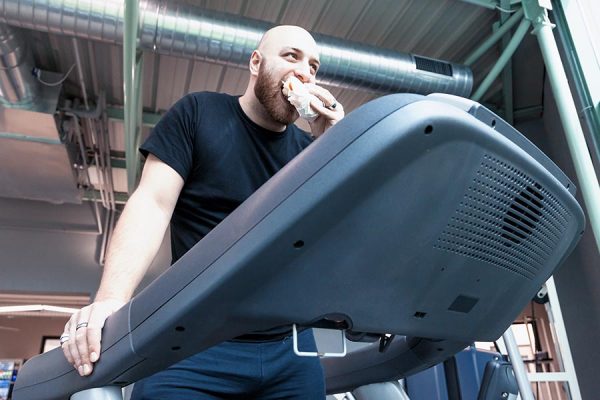
And yet today, it’s reached the point where some people, not just Instagram “influencers” but also those with PhD after their name, are actually telling you not to bother exercising to help with weight loss, just diet.
They may admit exercise is good for health, so “If you want to do it for that reason, go ahead.” But they won’t admit it’s a good weight loss tool when combined with proper diet.
We have lots of talking heads on you tube today saying, “Weight loss is 80% nutrition,” a statement not founded on a shred of science. This is only another (maybe well-intentioned) sound bite implying that you can cancel out calories burned through exercise with a poor diet, so prioritize diet. Closer to the truth is, “It’s 100% nutrition and 100% training.” (While we’re at it, it’s 100% mindset too!) Put your 100% into all of these elements, not one of them.
We also have strength coaches and bodybuilding trainers who aren’t naysaying exercise in general but are telling their clients to lift weights only and minimize or avoid aerobic exercise because lifting is what builds muscle while “dieting is everything” for fat loss.
Specificity in training plans is important. But telling weight lifters or physique athletes who need to reduce body fat to avoid cardio is poor advice (usually coming from an overly strength-centric authority).
Another wrinkle in this discussion is added because so many weight loss seekers keep asking, “Which is better for weight loss, dieting or training?
The number of times I hear this question shows how many people are coming from an either-or mentality. Journalists latch on to this and pen articles with statements like, “If you absolutely had to choose between diet or exercise, the science shows that diet plays a much bigger role in weight loss.”
This may be true. Achieving a deficit with diet does play a bigger role in the hierarchy of fat loss priorities. But exercise also has a role. Besides, this is the wrong question to ask in the first place because does anyone absolutely have to choose between one or the other? Maybe in a rare situation…
Years ago, I received a testimonial from a reader in South Africa. He said his doctor was very pleased to see that he had lost 30 pounds since his last checkup. This man was quadriplegic and restricted to a wheelchair. He said he couldn’t do much on the exercise front, but he dropped the weight by following the diet advice in my Burn the Fat, Feed the Muscle book. He used the calculations to figure the correct calorie level for someone doing no exercise, got the energy balance right, stuck to the eating plan for half a year, and that’s all it took.
Some people are able-bodied, but time-limited. In this case, it’s understandable that large amounts of exercise are not practical. These individuals will have to depend more on the nutrition side. But that also has nothing to do with whether exercise would be effective if they did invest the time. (And isn’t it a great thing that we have two sides to work with?)
Yes, it is true that making the right changes to the diet side will play the biggest role in helping you lose weight.
The initial reduction in food intake is an easier way to create a large calorie deficit than burning the equivalent amount with no change in diet. Plus, there’s no added time commitment. And the worse your diet is, the truer this will be. For example, some people start dropping weight by doing nothing but stopping a multi-soda per day habit. No training. No fancy diet. Just one bad diet habit changed.
If you fix a crappy diet first so you’re on the right side of the energy balance equation, that’s going to be a lot more efficient and practical than trying to get the same calorie deficit from large amounts of exercise. But again, that doesn’t mean exercise doesn’t help, or that you shouldn’t do it. It means you had a crappy diet.
In fact, suppose your diet leaves a lot to be desired in food quality and has poorly-balanced macros, but you’re in energy balance and maintaining your weight. If you don’t change a single thing in your diet, you simply add exercise, you can and will put yourself in a deficit and lose weight.
Far from diet being 80% of the weight loss battle, that’s an example of how you can lose weight with 100% of the behavior change coming from the exercise side and 0% from the diet side. That’s not the approach I recommend, but it reveals the flaw in how some people are thinking.
Here’s how we should think about this: Use both diet and exercise to get the most optimal results possible.
If you’re ambulatory, it doesn’t have to be one or the other. Diet and exercise both work for weight loss. It would be fair to say that for weight loss, diet is king and exercise is only queen, but the ideal approach is to put them together. It’s the royal combination.
Exercise not only works for weight loss, it’s vital for optimal health.
When talking about the benefits of exercise we must think beyond weight loss.
Exercise is not just for burning calories. If you want to optimize your weight loss as well as your health, you should be exercising. And, it should include both – cardio and resistance training. The benefits of resistance training should never be ignored, even if resistance training doesn’t give the same calorie burn as cardio training.
And while some people think they’re too old to lift weights, whatever your age, you’re too old not to lift, because the older you get, the more important functional strength is. It’s easy to take basic activities of daily living for granted, but who hasn’t seen an elderly person having trouble getting out of a car or chair?
A person may be getting up in years and still getting around okay, but then what about things like recovery from an accident, illness, or surgery? As a famous strength coach once said, “The strongest shall survive.”
Robust and repeated research has clearly demonstrated the power of exercise to transform your health.
If you hit the standard guidelines, such as 30 minutes of moderate aerobic activity (as simple as brisk walking) 5 days a week, you can probably expect to live about 5 years longer than if you are sedentary. That’s with physical activity alone, not even including the additive effect of eating healthier food. With this level of exercise, all-cause mortality rates drop by around 30% and even up to 40% or 50% with a little more activity.
There is such a thing as “obese but still (metabolically) healthy” but that’s the exception not the rule. Plus it doesn’t mean risk of future problems is not higher. If someone is obese, exercise is protective and reduces the risk of all the diseases and health problems associated with that excess weight.
The oft-given advice to start with just diet if you’re heavy is shortsighted. Movement may be harder if you’re overweight, but if you can, you should.
In the Annual Review of Physiology, Bente Pederson of the University of Copenhagen wrote,
“Physical inactivity is one of the leading health problems in the world. Strong epidemiological and clinical evidence demonstrates that exercise decreases the risk of more than 35 different disorders and that exercise should be prescribed as medicine for many chronic diseases.”
A large portion of the health risk reductions are due to improvements in blood pressure, blood sugar, and blood lipids – the major risk factors for cardiovascular disease. You can see positive changes in health markers like these within weeks of starting to exercise. These improvements have been seen even in people with high risk factor loads and genetic predispositions.
Exercise also improves a person’s chance of surviving a heart attack if it happens.
Type II Diabetes is an epidemic. Exercise, including both aerobic and strength training, improves glucose uptake into the muscles. Muscle is the biggest user of the glucose that enters the bloodstream after you eat. More muscle means better blood sugar control and less diabetes risk.
If you want a sound byte that actually sends a good message, here’s one: Exercise is medicine.
But as Dr Michael Joyner of the Mayo clinic has said:
“Exercise is not a vaccination.”
You can’t take it once and expect it to protect you for life. You have to keep exercising. And after you’ve lost weight, you have to exercise as much as ever. Researchers are unanimous in agreement that exercise is crucial for long-term weight loss maintenance.
To a certain point, more exercise is better. The good news is that you get the biggest health improvements going from doing nothing to doing something. Do you have to hit 10,000 steps a day? I think it’s a great goal, but no. If you’re at 3,000 a day (sedentary), can you bump it to 6,000 by adding 3,000 of brisk walking? Don’t have 30 unbroken minutes? Can you do 10 minutes at a time?
Something is always better than nothing. Unfortunately, all-or-none thinking keeps many people from doing whatever little something they can do with what they have, where they are now.
Diet alone can produce weight loss, but it’s a lousy way to do it when you consider the bigger picture and the importance of health, fitness, function, strength and quality of life as other important goals.
The bottom line on exercise for fat loss
Even though a lot of people are fond of that quote, “You can’t out train a bad diet” (it’s pretty popular as a meme or motivational poster), it wouldn’t bother me if we retired it, just like we could do away with other easily misunderstood terms like “starvation mode” and “metabolic damage.”
At the very least, we need context and precision in our communication to make it clear that nutrition may indeed be the highest priority, but also that exercise is vital for health and that yes, exercise works for weight loss too.
Don’t downplay exercise for weight loss. Don’t follow people who do. If a low-carb, high-fat diet with zero exercise takes the weight off for someone, great. But don’t say that means exercise doesn’t work. Above all else, everyone needs to talk about health, fitness and strength in the same conversation when talking about weight loss.
One last thing – it’s important
Most of the online noise about cardio today just argues about which type is “best.” Almost no one talks about what’s best for YOU. And almost no one looks at risk vs. reward.
That’s why I wrote my new e-book, the EXTREME FAT LOSS: The Risk To Benedit Guide.
Inside, I break down every major type of cardio – HIIT, MISS, LISS, SIT, fasted cardio, even double cardio (two sessions a day). I don’t just “review” them either, I analyze each type of cardio with a simple and honest risk-to-benefit rating system. That helps you decide:
- Which types of cardio actually burn the most fat (and which are overrated)
- How each style affects recovery, muscle retention, and long-term sustainability
- The truth about “fat-burning zones” – and why some cardio methods can backfire
- What I recommend when you’re trying to get lean fast – without sacrificing muscle
- What most people should avoid
You don’t need to listen sound bytes or follow whatever is trending on social. You just need the truth, so you can choose what works best for you.
==> Click here to see the Extreme Fat Loss guide
Tom Venuto
Author, Burn the Fat, Feed the Muscle (BFFM)
Author, Extreme Fat Loss: The Risk To Benefit Guide
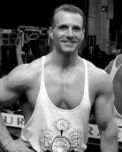
Tom Venuto is a natural bodybuilding and fat loss expert. He is also a recipe creator specializing in fat-burning, muscle-building cooking. Tom is a former competitive bodybuilder and today works as a full-time fitness coach, writer, blogger, and author. In his spare time, he is an avid outdoor enthusiast and backpacker. His book, Burn The Fat, Feed The Muscle is an international bestseller, first as an ebook and now as a hardcover and audiobook. The Body Fat Solution, Tom’s book about emotional eating and long-term weight maintenance, was an Oprah Magazine and Men’s Fitness Magazine pick. Tom is also the founder of Burn The Fat Inner Circle – a fitness support community with over 52,000 members worldwide since 2006. Click here for membership details
Scientific References
Bente, P, The physiology of Optimizing Health with a Focus on Exercise as Medicine, Annual Review of Physiology, Vol 81, 607-627, 2019.
Lyttle JR et al, Med Sci Sports Exerc, Predicting Energy Expenditure of an Acute Resistance Exercise Bout in Men and Women, 51(7):1532-1537, 2019.
Phillips S, Joyner M, Out-running ‘bad’ diets: beyond weight loss there is clear evidence of the benefits of physical activity, British Journal of Sports Medicine, 53:14, 2018.
Malhotra, Noakes, Phinney, It is time to bust the myth of physical inactivity and obesity: you cannot outrun a bad diet, Br J Sports Med August 2015 Vol 49 No 15, 2015.



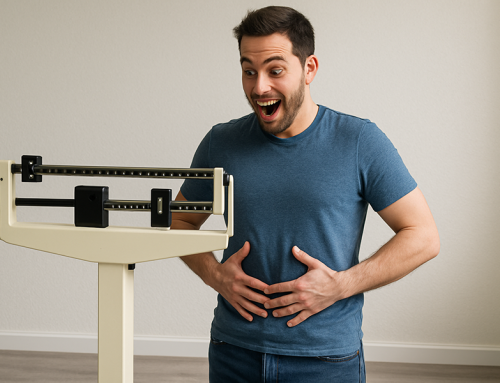
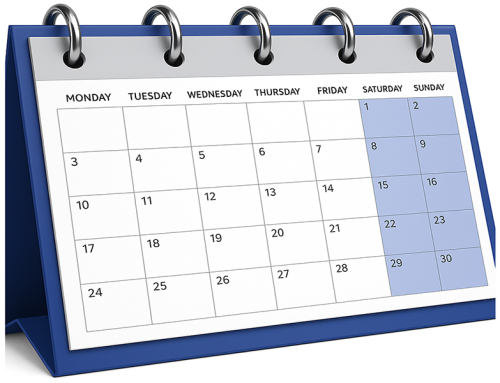
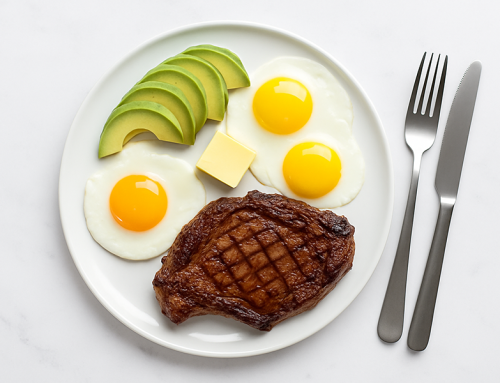
As usual your advice is encouraging, practical and real – and it makes sense.
I agree with Kevin up above my comment your advice is encouraging, practical and it definitely makes sense! I agree with you because of your no nonsense advice and experience.
My one request is to write a few sentences for 84 year olds!
Hi Joanne. My mom and dad both turned 84 this year. my dad had some major health problems last year but recovered completely. its amazing how resilient the human body is. An 84 year old can be very resilient if he or she practices good nutrition and exercise. My mom has Alzheimers. its sad because there’s not much you can do about it. there are things you can control and things you can’t control. But… I have both my mom and dad doing very simple but effective resistance training exercises. They need my push / motivation to do the strength training. But Mom and dad both do cardio exercise – treadmill or bike in bad weather or walking around the block in good weather, on their own. Its a habit. . you are never ever too old old to focus on your fitness your strength and your health.
Good article, Tom. Is it just me, or do your posts keep getting better and better?
Thank u sir.
This is excellent, as always.